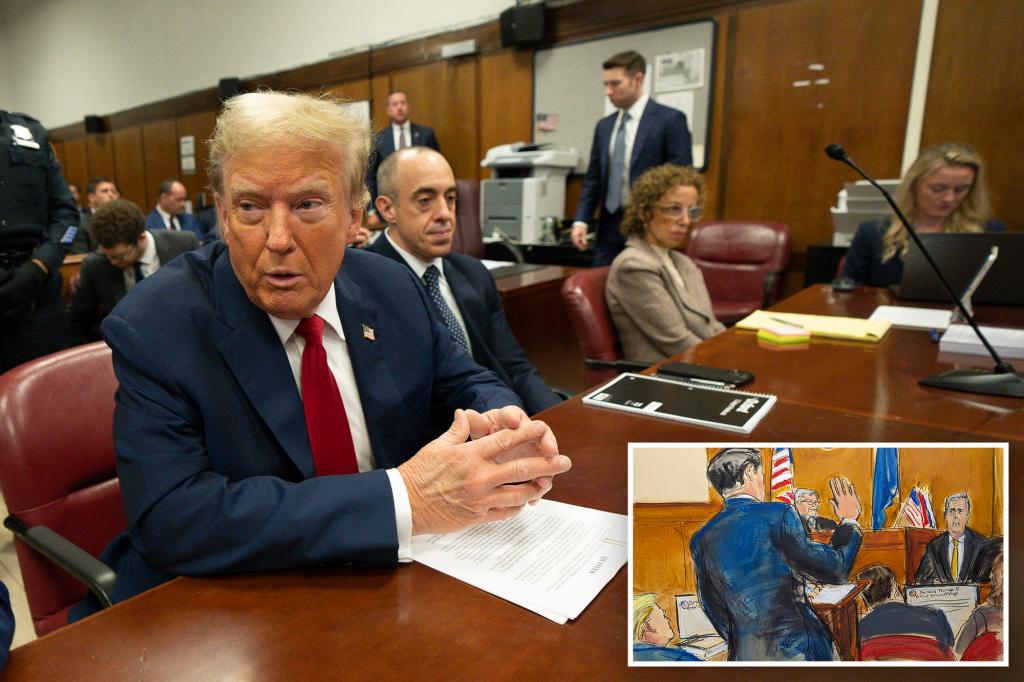Former President Donald Trump is facing a historic hush money trial that is approaching its end, with Michael Cohen, his former fixer turned foe, set to conclude his testimony. Manhattan Supreme Court Justice Juan Merchan has informed both prosecutors and the defense to start preparing for closing arguments, indicating that jury deliberations could begin soon. After four weeks of testimony, Trump, who is 77 years old, could potentially be either convicted or acquitted.
One crucial aspect that jurors will have to consider is Michael Cohen’s credibility. As the star prosecution witness, he has worked for Trump for approximately a decade and has a history of lying. Prosecutors have questioned Cohen extensively about his past lies and misdeeds to establish his credibility. Trump’s lawyers have attempted to undermine his credibility by highlighting his previous lies, portraying him as someone willing to lie to see his former boss behind bars.
The extent of Trump’s involvement in the alleged scheme to silence damaging stories about his sex scandals will likely be a significant factor in the jurors’ decision. Cohen testified that Trump was intimately involved in all aspects of the scheme, including the payments made to porn star Stormy Daniels and Playboy Playmate Karen McDougal. Trump has denied the affairs, and his lawyers have questioned how much he knew about Cohen’s actions, casting doubt on his involvement.
The 12 jurors may focus on the business records, including checks, invoices, and documents, that Trump is accused of falsifying to conceal reimbursements made to Cohen for the payments to Daniels. Testimonies from witnesses like Jeffrey McConney, the former controller at Trump Org, and Deborah Tarasoff, the longtime Trump Org accounts payable supervisor, shed light on the checks and payments made to Cohen. The jury will have to determine if these checks prove that Trump did indeed pay off Stormy Daniels.
In order for the charges against Trump to be considered felonies, prosecutors will need to establish that the falsification of business records was part of another crime. There are implications that Trump was attempting to hide sex scandals from voters to influence the 2016 election. Testimonies from key figures like Hope Hicks and David Pecker suggest that Trump was concerned about the impact of these scandals on his family and the election. The defense raised questions about Trump’s motives, arguing that he was merely trying to protect his family.
One crucial piece of evidence that jurors will consider is Cohen’s secret recording of a conversation with Trump discussing plans to suppress McDougal’s story with the National Enquirer. In the recording, Trump can allegedly be heard discussing payment plans to kill the story. Cohen testified that the recording was meant to assure David Pecker that Trump would reimburse him for the payment made to McDougal. This recording could provide insights into Trump’s involvement in the alleged scheme and his knowledge of the payments.
As the trial nears its conclusion, the focus will be on determining Trump’s guilt or innocence based on the evidence presented. Jurors will consider Cohen’s credibility, Trump’s involvement in the scheme, the checks made to Cohen, Trump’s intent to hide the scandal, and the secret recording of the conversation with Trump. The outcome of the trial could have significant implications for Trump’s legacy and future legal troubles.


